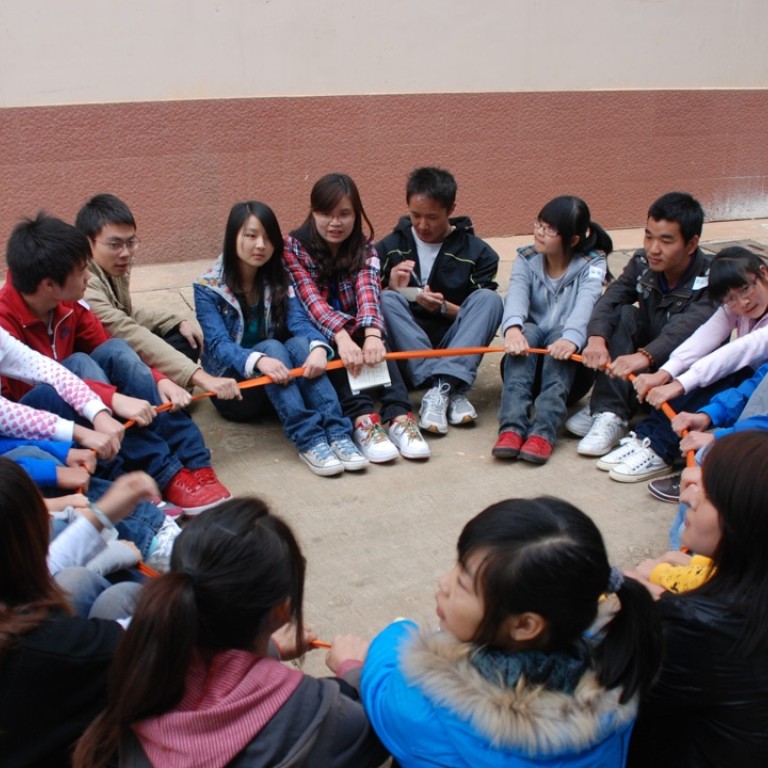
How to be a better corporate do-gooder
A nine-metre drop off a mountain, head first, leads to spirit of questioning
Like many people in this city, I like to win. A love of competition, deep and consistent focus and a willingness to endure short- and sometimes medium-term suffering to achieve long-term results are part of my mantra.
But I recently had the great good fortune to think about whether other values should define how I live my life as an individual and as a corporate citizen … though it took a nine-metre drop off a mountain, head first, to achieve that spirit of questioning.
I had a bad fall while running Action Asia’s Lantau Peaks a few weeks ago. Lying unable to move, my head and upper body wedged between two trees that probably prevented a much worse outcome, I was rescued by the grace of strangers. A few other runners, probably chasing records of their own, forfeited their races to help me. A 12-person Hong Kong emergency crew hiked four hours in the pouring rain and 140km/h winds to carry me off the hill. What did I learn lying immobile and freezing all those hours on the stretcher, dependent on these people whose names I hardly knew? You have to do good when you can.

I’ve come up with four principles that have helped us to be better corporate do-gooders. The first is to take the time to do the research. Just like a business partnership, mutual understanding and shared values and beliefs are the basis of a sound long-term and fruitful charity partnership.
SC Lowy has grown its support from a fundraising event in Nepal (a race – no surprise there) to ultimately joining the EMpower board this year. Starting small, learning and developing loyalty and commitment over time builds comfort that funds donated are used most efficiently.
Making an investment, we focus on returns and accountability. In donation, we tend not to spend as much time in such evaluation
As a small firm focused on Europe and emerging markets in Asia, we were looking for an organisation with expertise in these countries. EMpower also spoke to us because it was started by professionals in the finance industry, many of whom were also looking to give back where they have built their careers. Finding the right partner means knowing what you are looking for, doing the research, and building the relationship slowly.

The next principle is to realise that the theory of change is standard operating practice.
Just like a business, a charity or foundation should have clearly thought through the difference it wants to make, and how it will go about achieving that difference. It should have a plan for tracking whether its objectives are being met and a way to measure success. It then needs to repeat that evaluation process regularly, to see whether its goals need to be updated or changed.
For us, a foundation structure like EMpower makes sense. Operating a little like a fund of funds for social organisations, the goal is simple – to shift the trajectory of the lives of at-risk youth in emerging markets. The strategy is simple – a focus on women, children and education initiatives. Tactically, this means finding locally-led, grassroots organisations who are in a better position to know the context, issues and players and how best to support youth in their communities.

Goal, strategy, plan, measurement, evaluation, results. Check, check, check, check, check and check. In non-profit circles, they call this the theory of change. In business, we hope it is standard operating practice. Make sure your chosen charity is practicing a sensible theory of change.
The final principle is that the engagement should be meaningful to your firm and engage your staff.
Our business is focused on the deep-value segment of the market so it is not surprising we are interested in organisations that operate close to the recipients of aid themselves and are not afraid of getting down and dirty. EMpower creates a vehicle for us to do that. Given our board underwrites the foundation’s costs, many of us also visit EMpower-funded local organisations and meet the programme’s young beneficiaries to witness first-hand how their giving is making a difference. Having a highly energised and involved leadership group in EMpower’s three boards translates into commitments of not just money, but also time and expertise. The result is quality throughout.
Michel Lowy is co-founder and chief executive of SC Lowy


